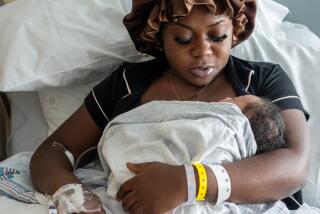Navy baby ICU in San Diego: hub for the Pacific

Navy baby ICU in San Diego: Hub for the Pacific
- Share via
It’s more scary than battle: To have a baby born prematurely, or with a dire medical problem.
More than 400 military families return to San Diego Naval Medical Center’s neonatal intensive care unit every year for a reunion. They greet the nurses and doctors who helped saved babies born as early as just over 20 weeks.
This 30-bed ward is the center of gravity for Navy preemie babies around the Pacific.
Navy and Marine Corps families from as far as Hawaii and Japan come to San Diego to save newborns with serious health risks. The Navy has only three advanced neonatal units like this around the world.
The twin daughters of Roland and Esther Kiendrebeogo, both Navy service members in San Diego, were born far too early in 2013.
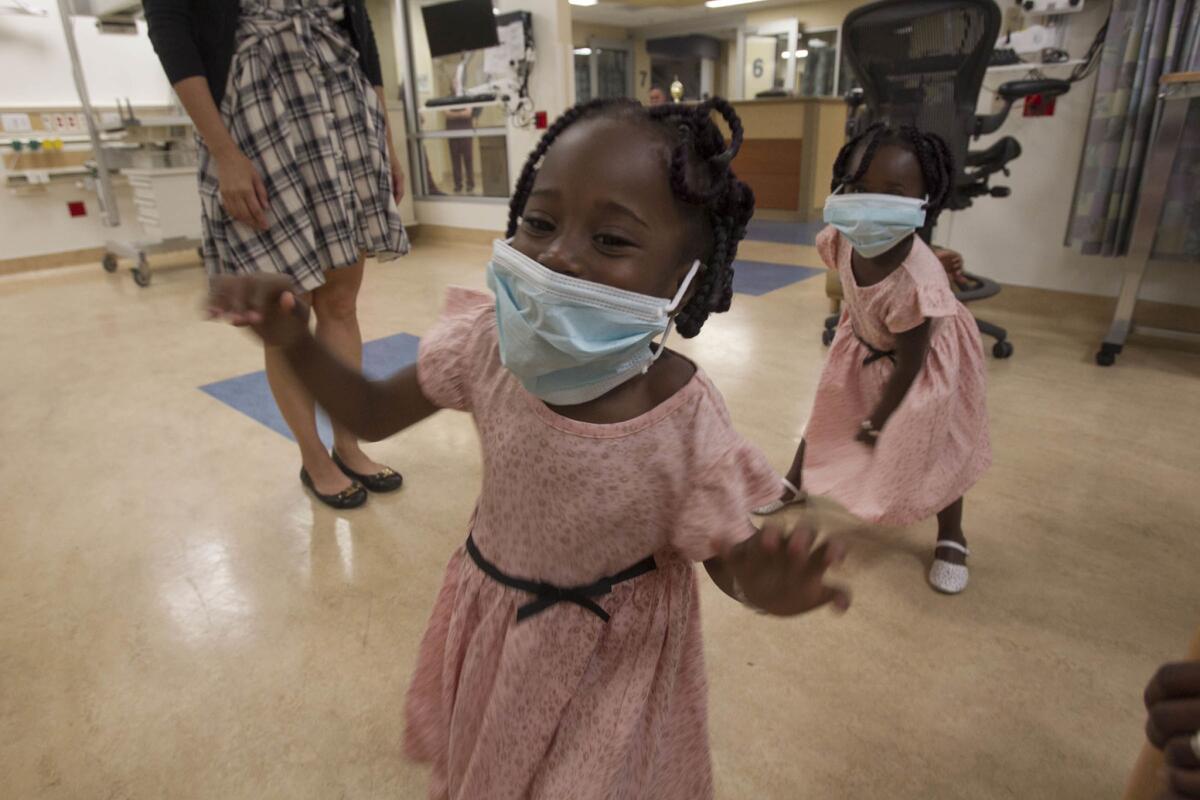
Each weighed less than two pounds at birth.
“I was beyond frightened,” said Esther Kiendrebeogo, 35, who is a lieutenant junior grade in health care administration.
“I never had really any serious health issues” before this, she said. “I consider myself pretty athletic, so for this to come out of nowhere was really scary.”
RELATED
100 years of Navy medicine in San Diego.
______________________________________________
Their girls, Faith and Grace, lived in the Balboa Park baby ICU for more than 90 days.
Doctors gave them a 50 percent chance of surviving, and a 25 percent chance of having normal lives. They couldn’t breathe on their own and had to be tube fed.
“We have scary pictures,” said Roland, their father. One shows his wedding band on one of the girls. She was so tiny, the ring fit around her shoulder.
“In the first five weeks, they would stop breathing a few times every day. They died in front of us, I can’t count how many times. They are miracle babies,” Roland says now, as his three-year-old twins run around a hospital waiting room.
The girls have strong lungs, and they shriek and grapple over their parents’ cell phones like every other toddler.
The neonatal ICU became the parents’ second home. They only returned to their house to sleep.
“We were here first thing in the morning,” Esther said. “This became a family for us.”
Inside the ward, the atmosphere is quiet — not the busy hum and rattle of the rest of the sprawling hospital.
“We try to keep it calm in here,” said Julie Bishop, head of NICU nursing.
Unbelievably tiny babies lie in enclosed clear plastic bassinets. The average length of stay is 20 days. But extreme preemies can need care for up to four months before they go home, said Dr. Lisa Peterson, a pediatrician who is the medical director.
It creates an unusual bond — hence the reunions every June.
“They come celebrate their babies’ birth and development each year and let us see what they’ve become,” Peterson said. “We have kids coming back in their teens. We’ve even had some adults come back and show us what they’ve grown into. It’s pretty special.”
Why does the Navy devote resources to this intensive-style care? It could refer these cases to the private sector.
“Because service members know their smallest families members are well taken care of, they can feel comfortable to be overseas,” Peterson said.
“They know that people in the Navy are taking care of their family members.”
Military Videos

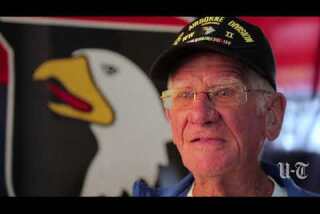
D-Day paratrooper from Coronado jumps again in France — at age 96
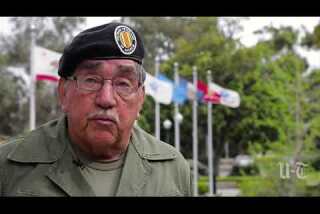
Remembering war's fallen, one name at a time
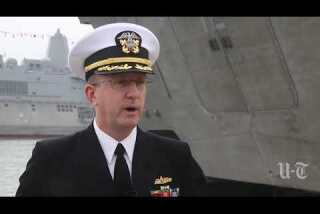
Video: Navy's newest vessel sails into San Diego and a new future in surface warfare
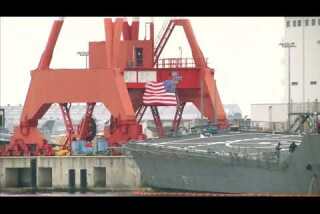
Video: U.S. Navy files homicide charges over warship collisions
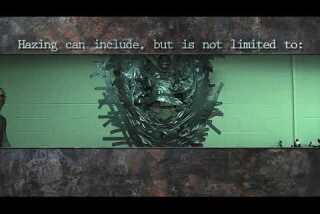
Stopping Marine hazing

Video: U.S. Navy Air Crew Grounded After Creating Vulgar Sky Drawing
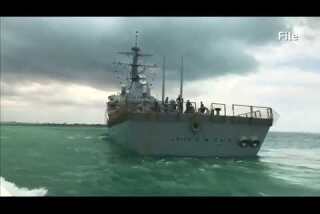
Navy says Asia Pacific ship collisions were avoidable
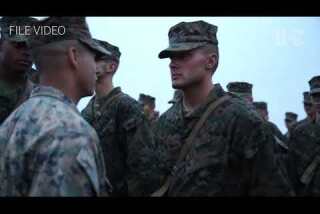
Hundreds of recruits get sick at Marine boot camp
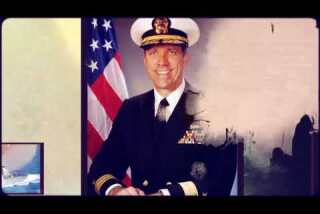
Cutler Dawson Talks Navy Federal


